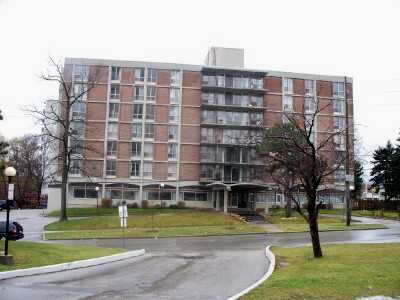I’ve been meaning to write the blog post for the past two weeks and have been so busy with the projects underway including our Friends of Winchester Park project.
I recently sold a condo unit for a client that was referred to me by another client. The condo, while updated, was in an older building that was kept up very well compared to the neighboring buildings and there were lots of updates being completed including the whole underground parking garage.
We met in early March and spoke about what they were looking to achieve by selling, discussed their options and started working on getting the space ready for sale. There were minor items that I recommended the sellers complete and we were able to have them all done in three days.
I prepped all our marketing materials including videos and flyers and listed the property at market value and recommended to the sellers to hold the offers for a week. The week started off with a bang and we were able to get 14 showings in the first week and sold the property for over asking price. BAM!
Life is good! Only condition that’s in the offer is the status certificate which shouldn’t be a problem as I’ve already spoken with the property management company and was told that there is sufficient reserve fund available.
I order the status certificate for my client in the morning and by the next morning had a call that its ready for pick up. I send one of our faithful couriers to grab the package to pick it up and deliver it to the buyer’s lawyer.
One of the things I love about my business is that no two closings/contracts are alike. Each represents a different set of challenges and keeps us on our toes. See my earlier post “Closing day and me” for another crazy closing story. This closing also had a curve ball lined up!
I got a call next morning from the buyer’s agent which went on to explain that the status has problems. “There is no reserve fund study done!”, said the buyer’s agent which baffled me. “What do you mean that there is no study done?”, I asked while running different stories of past closings in my mind of failed contracts.
Money is always the issue with status certificates. Usually there is money, small increments or large amount, that is due in the near future which the lawyers will warn buyers about and either the price is adjusted or the buyer walks away. We usually see issues such as not sufficient reserve funds or a new levy to pay for upcoming repairs is coming up, or an increase in maintenance fees which is disclosed based on a reserve fund study completed by the property management company.
What happens when there isn’t a reserve fund study? How do you gauge what the upcoming expenses would be and what should be discounted?
Some of you might be thinking, if the property is sold in multiple offers then just go back to the other offers and have them come in firm. The issue is all the offers that came in had the status condition. We can’t look back at those offers rather have to work with what we have in front of is.
We ended up discounting a fictitious number that the buyer and her lawyer agreed on and went firm.
My question is, why do sellers have to put up with incompetent service like this? It was bad enough that the condo building is old and it hasn’t seen much in appreciation, now they also had to discount the price that the market was willing to offer for their condo.
There should be a recourse to property management companies that mismanaged!
I say that we bill the property management company for the discount that had to be offered and once they get enough of these bills, they will start to act according to what they are hired or fire them and get the right company in place that will follow the rules.
The Condominium Act is currently also under review because it doesn’t help owners of old condo units. There are limitations that I will discuss in another blog post.
At the moment, I say, buyers beware when purchasing older condos and owners, stay on top of what your property management company is doing. Be part of the conversion!
 Torontonian Online Running in the fast lane! Real estate and more…
Torontonian Online Running in the fast lane! Real estate and more…


Hmm, interesting story. Similar one going on in my office. Agent has offer on the table but let the deal expire because the AGM for the condo is happening at the end of the week and she wants to see what happens with potential special assessments. Buyers should be more aware of potential status issues with older buildings, and sellers should have a better understanding as to how the results of a reserve fund study can impact their value. Do you know if there is a standard for how much should be in a reserve fund? (per unit)
I don’t know what the reserve fund per unit should be. I know the building I’m talking about was supposed to have 33,000 in reserve fund which it did.
The reserve fund study is to be completed every three years by law. This property manager did do a study but it wasn’t extensive and was rejected by the board of directors.